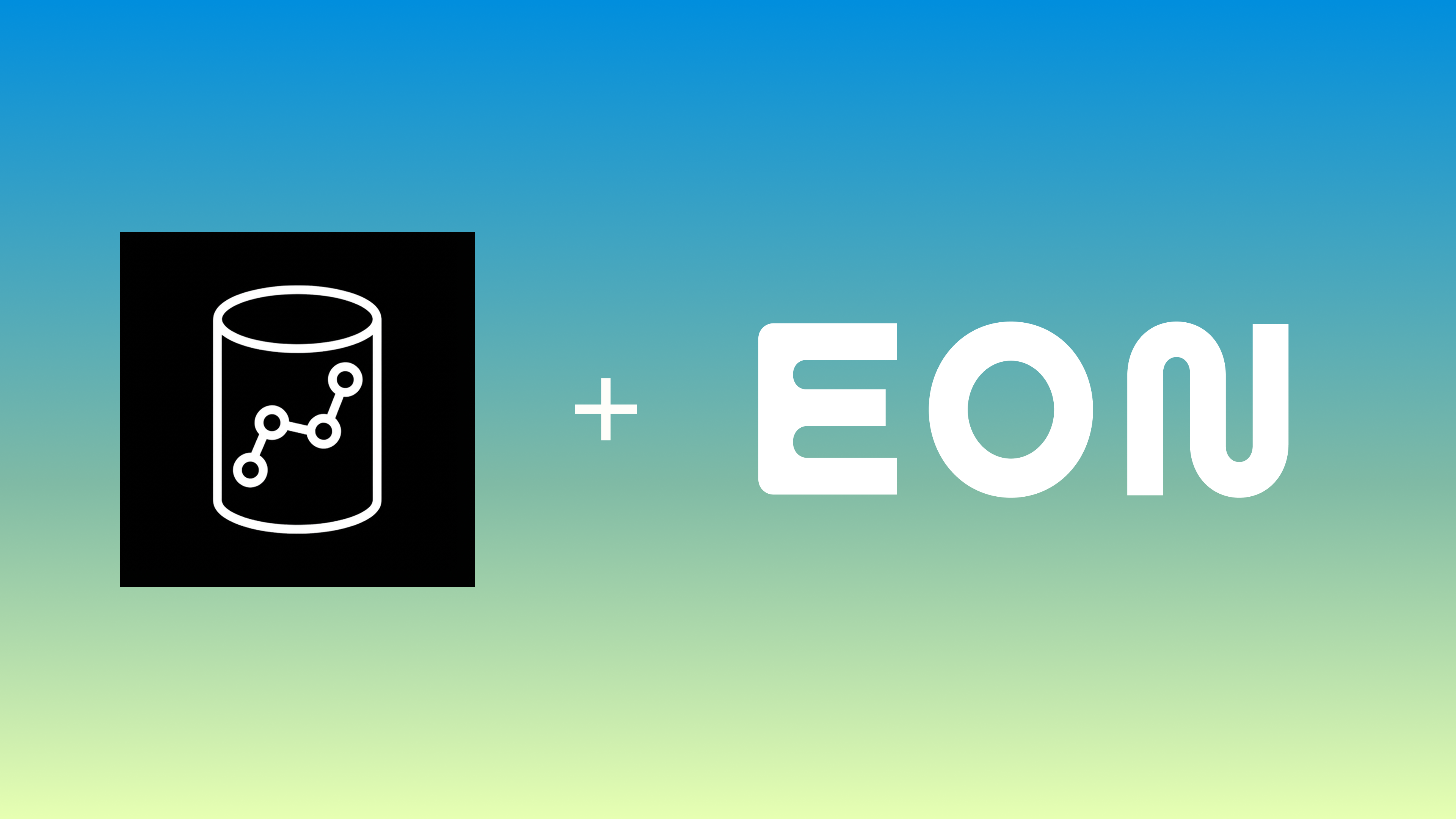If you’re exploring backup alternatives or ways to optimize backup costs, you’re not alone. Many organizations find their existing backup strategies limited in flexibility, costly at scale, and lacking critical features like instant recovery and ransomware protection. In this guide, we compare AWS Backup vs. Eon, one of the top alternatives for multi-cloud, cost-efficient, and secure cloud backup in 2025. See how Eon delivers better performance, faster recovery, and stronger compliance for modern cloud infrastructure.
AWS Backup vs Eon: Feature Comparison Overview
1. Manual Tagging vs. Autonomous CBPM
Cloud Backup Posture Management (CBPM) ensures your cloud backups are set up correctly and running smoothly. It helps you keep your data safe, secure, and always ready for recovery, no matter what happens.
AWS Backup: Manual resource tagging and backup policy setup increase the risks of error and operational overhead. Missed resources can lead to a higher data loss risk and lower compliance.
Eon: Provides fully autonomous CBPM that continuously maps, classifies, and groups cloud resources. No manual tagging required! Eon adapts automatically to changes in your cloud environments, ensuring backups always align with compliance and business requirements.
Key Advantages:
- 80% reduction in IT time spent managing backup policies
- 90% less time spent on compliance management
- 100% of data loss incidents prevented
- 100% compliance audit pass rate
2. Backup Data Access
With instant access to backups, you can quickly find the specific objects, files, or datasets you need, which saves you a ton of time and frustration. Whether for a compliance check or fixing an error, getting back to business quickly is key. It also gives you more control over how you recover your data, so you can do it the way that works best for you—no full system restore necessary. Simple, fast, and effective.
AWS Backup: AWS recently introduced item-level recovery for EBS snapshots and S3 backups, but there is no cross-region aggregated search and associated costs.
The search functionality requires a specific configuration, and pricing is based on the number of items indexed and searched. There's no option to restore more than five items in a single restore job, which must also be configured in advance. Additionally, the search process is asynchronous and incurs a cost per search. AWS does not maintain index differentials, meaning that searching across multiple backups results in a linear cost increase. Furthermore, it is impossible to query RDS or the Database on EC2.
Overall, the solution is costly, requires complex indexing, and is limited to S3 and EBS backups. Access to backed-up data is restricted, requiring users to know the exact location of the data, and retrieval times can be slow.
Eon: Eon offers instant access to individual files, folders, and database records without needing to restore the entire environment. It enables direct SQL queries on managed or self-managed EC2 instances, making the data immediately actionable for audits, forensics, or analytics. Eon supports full SQL search across RDS backups and self-managed databases on EC2. It also provides seamless file and object search across all snapshots at no additional cost. This allows instant access to backed-up files, tables, and records, saving time and resources.
Case Study: StructuredWeb achieved a 98% reduction in backup retrieval time with Eon
3. Multi-Cloud Support
Many companies are going the multi-cloud route, spreading their data and services across different cloud platforms to get the best of what each has to offer. While it sounds great in theory, there are real challenges when it comes to backup, recovery, and security. The more clouds you use, the more complicated things can get. Keeping track of where your data is, ensuring it’s backed up correctly across all those clouds, and ensuring it’s secure is a lot to handle.
Plus, if something goes wrong, recovery can become a real puzzle. It’s why companies need a solid strategy to manage all these moving parts, ensuring they have a clear, unified approach to protecting their data, no matter where it lives.
AWS Backup: Limited to AWS environments. It does not provide seamless multi-cloud backup management.
Eon: Eon supports AWS, Azure, and Google Cloud, offering a unified backup solution across multiple cloud providers, simplifying backup management in hybrid and multi-cloud environments. All searches are multi-region and multi-account, so there's no need to change regions in AWS to perform restores or similar operations. Eon also provides granular item-level restores, preventing full restoration and supporting cross-region backups with a single copy.
Key Advantage: Eon’s multi-cloud support provides comprehensive backup protection without the need for multiple tools. Unlike traditional methods, which require full instance restores and cross-region data duplication with manual tagging, Eon eliminates the risk of over-backing up by streamlining the process.
4. AWS Backup Storage Costs vs Eon Savings
Balancing cost and storage quantity is like trying to walk a tightrope: You want to ensure you have enough space to keep everything you need, but you don’t want to end up paying for more than you actually use.
AWS Backup: Item-level search and recovery incur additional costs, and inefficient storage practices can drive up expenses. Versioning is required, which leads to higher storage costs.
Eon:
- 50% less storage wasted with smarter snapshot retention
- Pay-as-you-go or commitment pricing models for flexibility.
- Eon Snapshots offer affordable alternatives to traditional cloud snapshots, slashing overall costs by 20–50%.
5. Ransomware Protection: How AWS Backup and Eon Compare
Ransomware attacks are evolving fast, and the cloud isn’t immune. Enterprises that rely on cloud-based infrastructure are realizing that traditional security measures aren’t enough to protect their critical data from encryption-based threats. Attackers no longer just target production environments or even standard data storage locations. They’re going straight for backups.
AWS Backup: No native ransomware detection or automated anomaly monitoring.
Eon: The ransomware package includes anomaly detection, air-gapped backups, immutable storage, and instant rollback capabilities. Monitor for unusual file changes, deletions, and suspicious activity to quickly restore systems to the last known good state.
6. Backup Compliance for HIPAA, GDPR, SOC 2
AWS Backup: Relies on AWS’s overall platform compliance certifications (like HIPAA and GDPR), but does not automatically ensure that individual backups are configured to meet regulatory requirements. Manual tagging and policy setup are still required to remain compliant.
Eon: Automatically aligns backup policies to compliance needs, helping organizations meet standards like HIPAA, GDPR, and SOC 2. Achieve faster audit-readiness without manual intervention
7. Deploying AWS Backup vs. Eon
Eon is designed to integrate with your cloud environment quickly and painlessly:
- Automated scanning and onboarding,
- Unified inventory view across clouds,
- No complicated manual tagging or policy writing.
You’ll be up and running faster, saving your IT team from months of configuration work.
AWS Backup Limitations Compared to Eon
When considering AWS Backup, keep these limitations in mind:
- Limited to AWS environments only
- Complex and costly item-level search and recovery
- No ransomware detection or automated recovery
- Manual tagging required for full protection
- Higher total cost of ownership due to storage inefficiencies
Choosing the Best AWS Backup Alternative: Why Eon Wins
Choose AWS Backup if you operate entirely within AWS, have minimal data recovery needs, and are willing to manage backup policies manually.
Choose Eon if you want:
- Effortless, autonomous backup posture management
- Instant, granular access to backed-up data
- Multi-cloud and SaaS application support
- Built-in ransomware protection
- 20–50% lower storage costs
- Faster compliance, faster recovery, lower risk
Eon transforms cloud backup from a necessary cost center into a strategic advantage.
Ready to see the difference? Schedule a live demo of Eon today and redefine your cloud backup experience
AWS Backup vs Eon: FAQs
Is AWS Backup enough for multi-cloud environments?
No. AWS Backup is designed solely for AWS services. AWS Backup won't meet your needs if your organization uses multiple cloud providers. Eon offers native multi-cloud support.
Does Eon support GDPR and HIPAA compliance for cloud backups?
Yes. Eon automates backup posture management to align with compliance policies like GDPR, HIPAA, and PCI-DSS. StructuredWeb achieved full compliance within just 30 days of switching to Eon.
How quickly can you access backed-up data with Eon?
Eon provides instant file, folder, and record-level access across all backups without full restores, achieving up to 98% faster retrieval times.
How does Eon protect against ransomware attacks?
Eon offers built-in ransomware detection, air-gapped and immutable backups, automated anomaly monitoring, and instant recovery to the last safe state—protecting your backups proactively, not reactively.









.jpeg)
